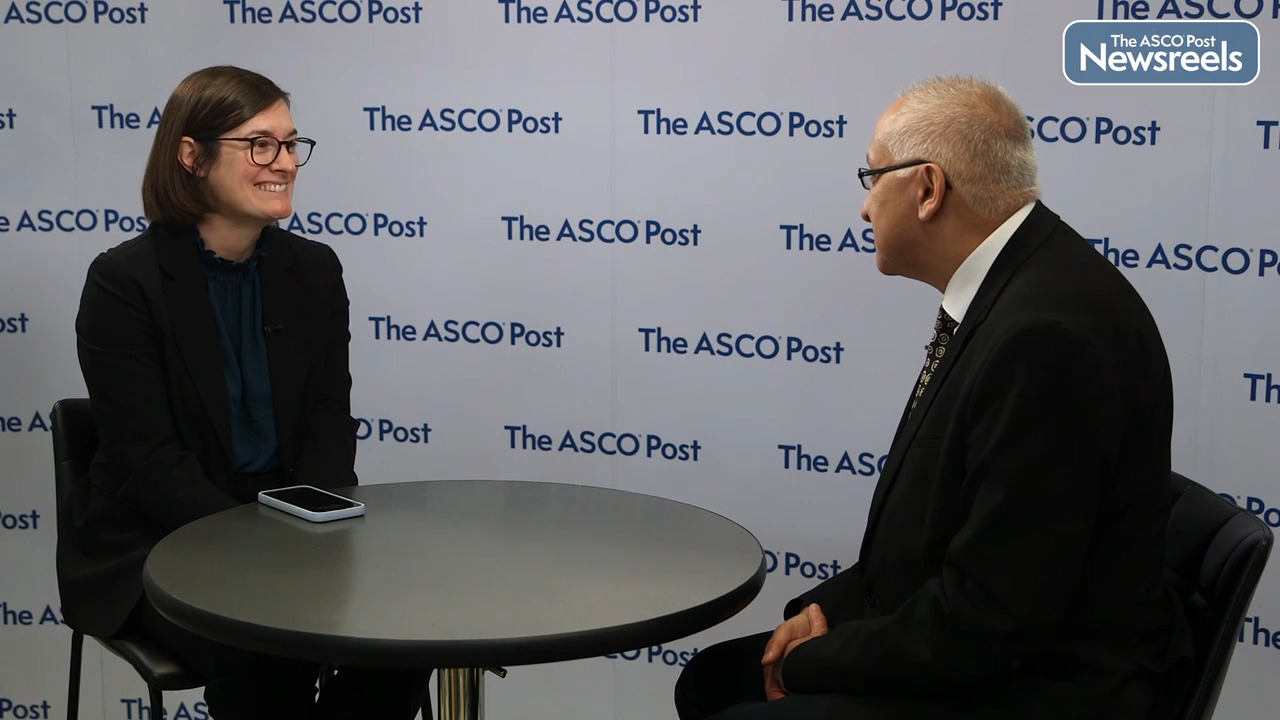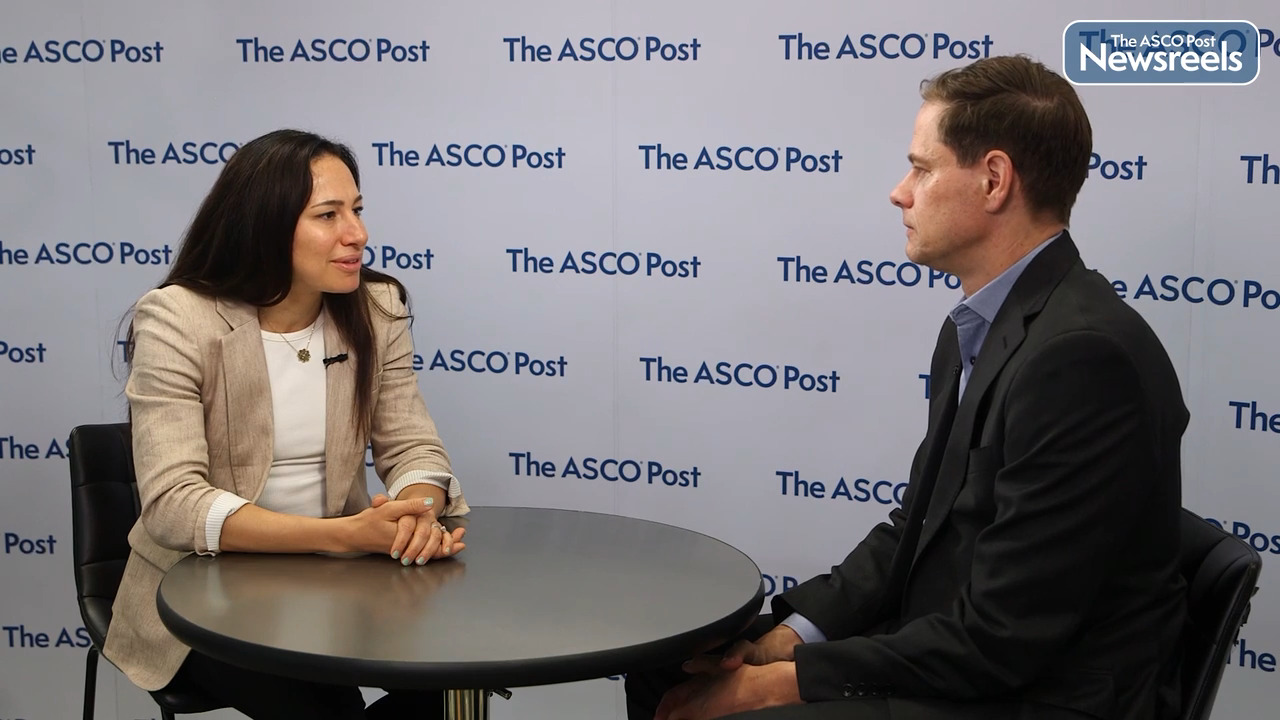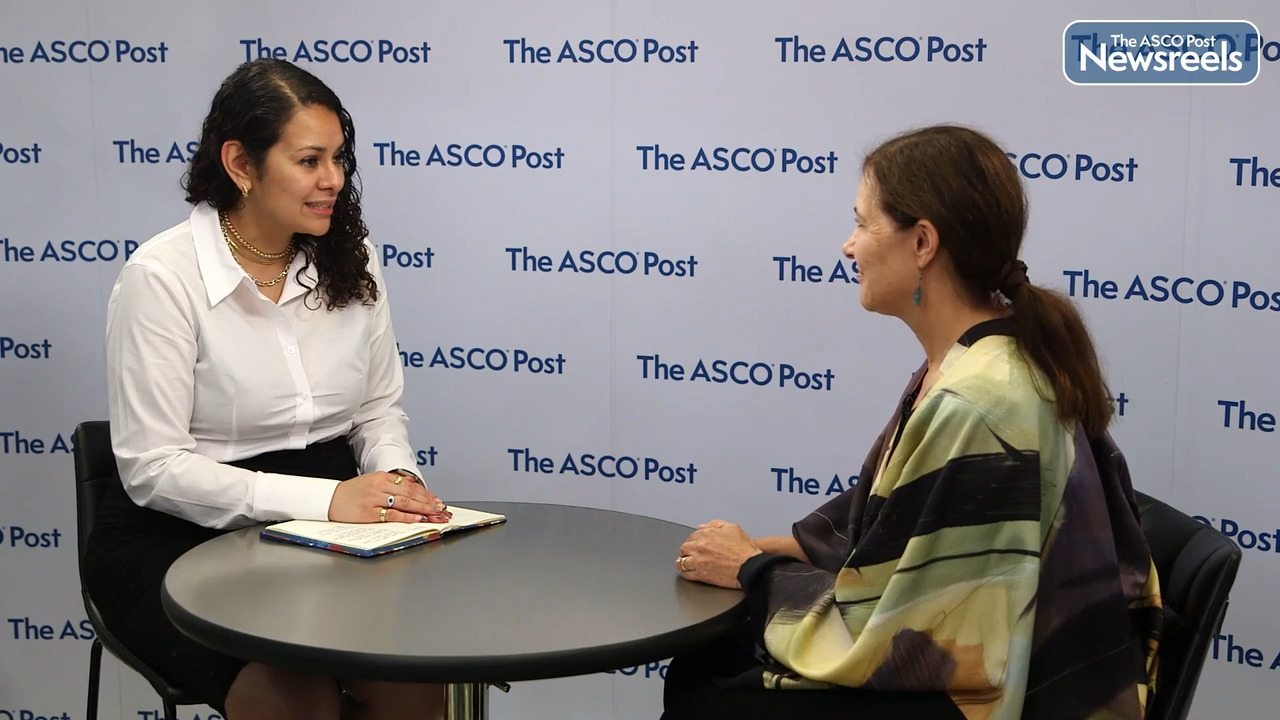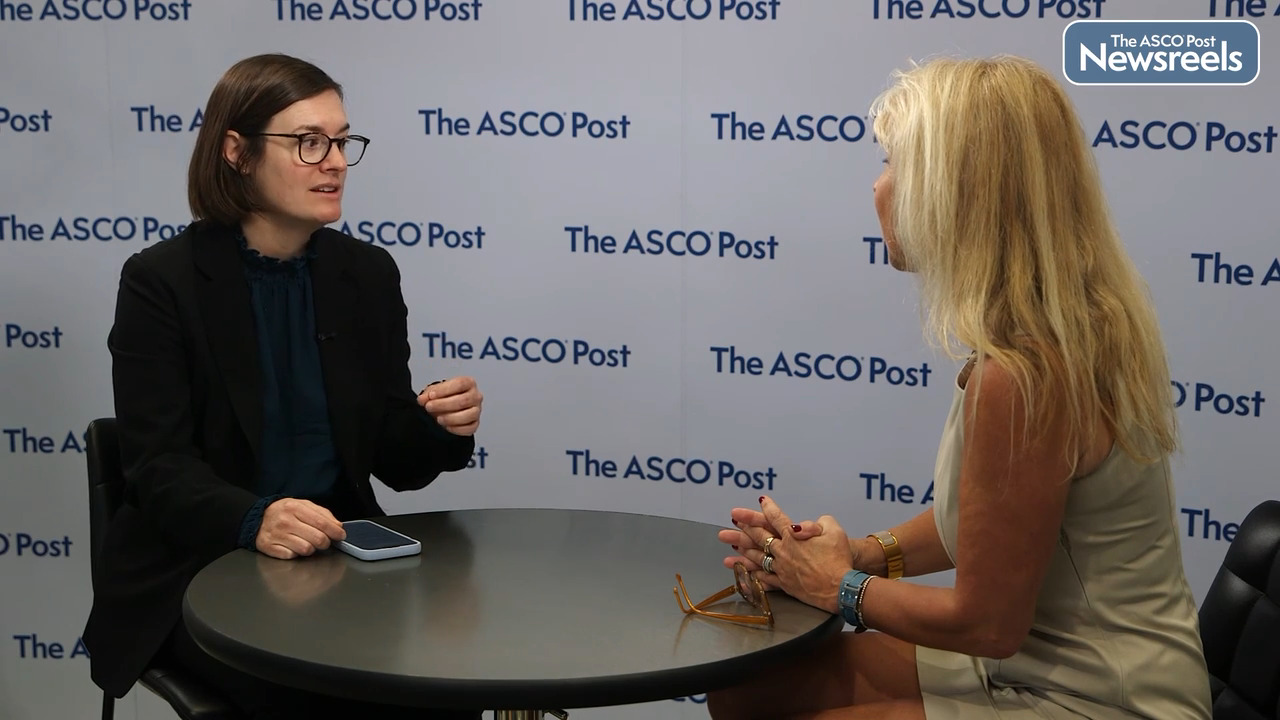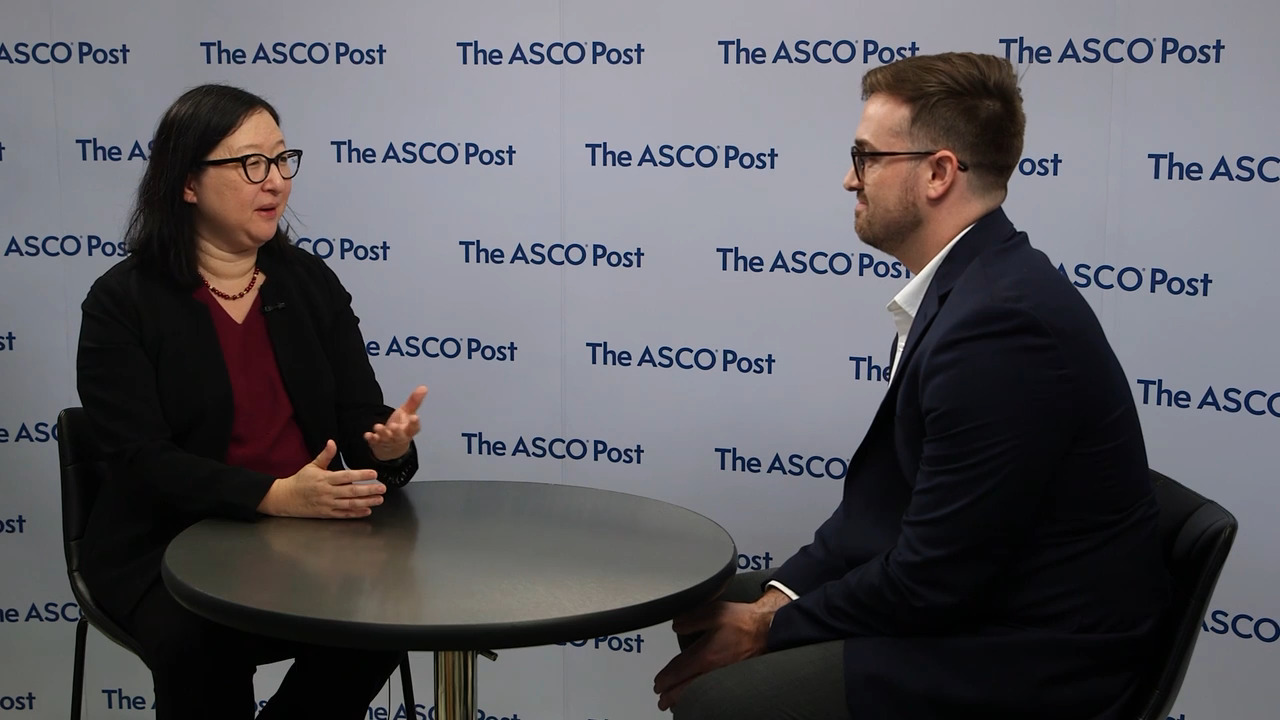Nirav N. Shah, MD, on Mantle Cell Lymphoma: Follow-up Data on Pirtobrutinib in Pretreated Disease
2023 ASCO Annual Meeting
Nirav N. Shah, MD, of the Medical College of Wisconsin, discusses the efficacy and safety of pirtobrutinib, a highly selective, noncovalent BTK inhibitor, studied for more than 3 years in the BRUIN trial. The results showed that the use of pirtobrutinib continues to have durable efficacy and a favorable safety profile in heavily pretreated patients with relapsed or refractory mantle cell lymphoma and prior BTK inhibitor therapy. Responses were observed in patients with high-risk disease features, including blastoid/pleomorphic variants, elevated Ki67 index, and TP53 mutations (Abstract 7514).
Transcript
Disclaimer: This video transcript has not been proofread or edited and may contain errors.
Nirav N. Shah:
So mantle cell lymphoma is a disease that sort of is felt to be a relapsing remitting disease, which means that most patients are going to relapse in their lifetime. Now, while we have very, very good therapies for relapse mantle cell, which generally include covalent BTK inhibitors. For those patients who progress after covalent BTK inhibitors, options are limited. We have treatments like CAR T-cell therapy, but not all patients are healthy enough, fit enough, or are in an area where CAR T-cell therapy is accessible. So pirtobrutinib was studied as part of the BRUIN trial to look specifically at patients with B-cell malignancies. And the data being reported is looking at the cohort of patients with mantle cell lymphoma who received this drug in a relapsed refractory setting. Unlike other BTK inhibitors pirtobrutinib is a non-covalent reversible inhibitor showing that it has a different mechanism of action than the BTK inhibitors that are currently being used in the second line setting.
As part of the BRUIN study, whether or not you had prior BTK exposure was not an exclusion, and so actually the majority of patients who received pirtobrutinib, 90 of them, actually had prior BTK exposure, which is an unmet need in mantle cell lymphoma. Despite seeing a different BTK inhibitor, first, the overall response rate with pirtobrutinib was 58% in this heavily pretreated group, which is really just exciting to have another oral agent be effective in that patient population. Not only was it effective, but there were also durable responses. And so now in this sort of two year long term follow-up, we know that the median duration of response for those patients who were responding to therapy was 18 months, and the median overall survival was nearly 2 years.
This data actually led to this drug now being FDA approved and in this clinical setting and available, and part of that is because the safety profile that's demonstrated in the BRUIN study in this patient population was actually quite favorable. The toxicities were low and the traditional BTK toxicities, things like atrial fibrillation, hypertension, and bleeding were actually seen at very low rates, such that may occur actually in a general patient population.
In conclusion, I think that pirtobrutinib represents a novel mechanism of action in inhibiting the BTK pathway and allowing patients that have failed other covalent BTK inhibitors to continue receiving an oral medication that has now shown incredible efficacy, safety, and durability.
Related Videos
The ASCO Post Staff
Bobbie J. Rimel, MD, of Cedars-Sinai Medical Center, and Mansoor R. Mirza, MD, of Denmark’s Rigshospitalet and Copenhagen University Hospital, discuss new findings on dostarlimab-gxly plus carboplatin/paclitaxel, which improved progression-free survival while maintaining health-related quality of life, further supporting its use as a standard of care in primary advanced or recurrent endometrial cancer (Abstract 5504).
The ASCO Post Staff
Rana R. McKay, MD, of the University of California, San Diego, and Brian I. Rini, MD, of Vanderbilt-Ingram Cancer Center, discuss the 5-year follow-up results with the combination of a checkpoint inhibitor plus a VEGFR tyrosine kinase inhibitor as first-line treatment for patients with advanced clear cell renal cell carcinoma (RCC). Pembrolizumab plus axitinib continued to demonstrate improved survival outcomes as well as overall response rate vs sunitinib for patients with previously untreated disease (Abstract LBA4501).
The ASCO Post Staff
Narjust Florez, MD, of Dana-Farber Cancer Institute, and Heather A. Wakelee, MD, of Stanford University, Stanford Cancer Institute, discuss new data supporting neoadjuvant pembrolizumab plus chemotherapy followed by surgery and adjuvant pembrolizumab as a promising new treatment option for patients with resectable stage II, IIIA, or IIIB (N2) non–small cell lung cancer (NSCLC) (Abstract LBA100).
The ASCO Post Staff
Bobbie J. Rimel, MD, of Cedars-Sinai Medical Center, and Isabelle L. Ray-Coquard, MD, PhD, of Centre Léon Bérard and the University Claude Bernard Lyon Est, discuss findings from the COLIBRI trial, which showed that, for patients with cervical squamous cell carcinoma, neoadjuvant nivolumab plus ipilimumab is safe and orchestrates de novo immune responses. The 82.5% complete response rate for primary tumors 6 months after standard chemoradiation therapy suggests favorable clinical outcomes (Abstract 5501).
The ASCO Post Staff
Eunice S. Wang, MD, of Roswell Park Comprehensive Cancer Center, and Gregory Roloff, MD, of the University of Chicago, discuss data that are the first to demonstrate post–FDA approval efficacy and toxicity rates of brexucabtagene autoleucel in adults with relapsed or refractory B-cell acute lymphoblastic leukemia. Although the data may confirm high response rates associated with this agent, they also highlight the need for interventions to reduce associated toxicities (Abstract 7001).
